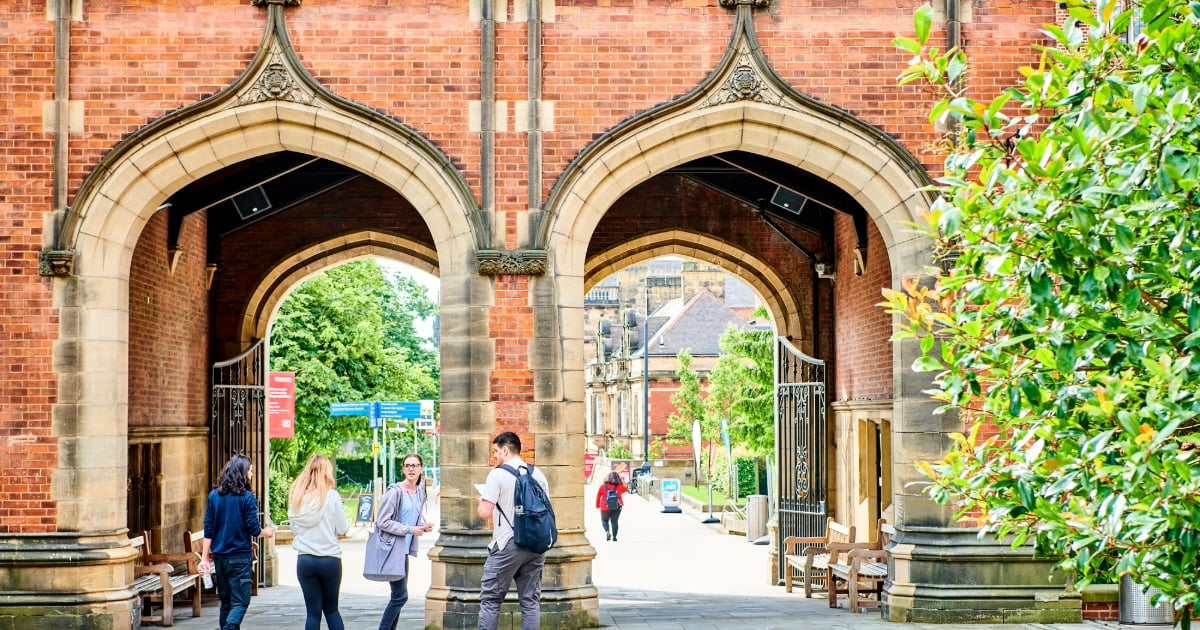Mastering the next chapter: the transition from undergraduate to postgraduate study
5 August 2025 | By: Yasmina Carlton | 3 min read
Making the move to postgraduate study from your undergraduate degree is an exciting challenge. Whatever your motivations - whether you choose to jump straight in after completing your undergraduate degree, or decide to come back to it years later - it can be an extremely rewarding venture both personally and professionally.
In this blog post, current Master’s student Francesca shares her journey – exploring the transition from her BA to MA, the differences she’s found so far, and things to consider before making the move.
Contents:
-
Why a Master's degree?
-
The move from undergraduate to postgraduate study
-
For those who have taken a break from academia
-
The pros you might not have thought about
-
Final words of advice
As my three years of study started to draw to a close, the ‘What's Next?’ question loomed for both myself and my peers.
For some, the end of our undergraduate degrees meant delving straight into a graduate scheme, others saw it as the perfect time to travel and experience new things - while for many, it involved taking a pause and gaining some work experience before plunging into the world of employment.
As for me? I decided I wasn't quite done with academia just yet.
Why a Master’s degree?
I am now studying my History MA at Newcastle University, after graduating with a BA in History and Politics, also at Newcastle. I chose to do a Master’s degree because I wanted to delve deeper into the subject I’m passionate about and build on the research interests that I developed in my undergraduate degree.
Since starting my postgrad degree, I’ve found that this level of study is unlocking new and invaluable skills that were not as readily available to me in my undergraduate years. The Master’s has given me another year to build up my experience for life beyond academia.
The move from undergraduate to postgraduate study
There is an ease that comes with continuing straight from undergraduate into postgraduate study - carrying the academic rhythm forward, and maintaining the momentum built during the undergraduate years.
While the workload inevitably took a step up, the transition was remarkably manageable, and the continuity allowed me to stay in the swing of academic life. Given that many postgraduate courses typically span from September to September, the workload is distributed throughout the year, preventing it from becoming overwhelming.
Some postgrad students opt for a breather between degrees. For those of us who haven’t, this welcomes a fresh set of faces of different ages, experiences, and backgrounds. My course includes students from other universities and countries - this diversity enhances classroom discussions with varied perspectives. I'm enjoying getting to know peers from other walks of life during this next chapter of study.
"The emphasis is on becoming an independent researcher, not going it alone."
Postgraduate study places a greater emphasis on independent research and critical analysis, compared to undergraduate degrees. However, this certainly does not imply that you are neglected by teaching staff.
The smaller postgraduate teaching groups mean you have more frequent access to incredible academics who can provide invaluable one-on-one support. My professors have offered insightful feedback and pushed me to strengthen the critical thinking skills that are vital for success at postgraduate level. The emphasis is on becoming an independent researcher, not going it alone.
For those who have taken a break from academia
The teaching staff are aware of the fact that some postgrad students may have been removed from academia for some years before returning. The small-group style helps reintegrate them smoothly - it's nearly impossible to get lost amongst a cohort of around 20 peers.
A useful feature of my postgraduate course is the use of formative assessments. Unlike summative assessments that contribute to the final grade, formative assessments serve as valuable learning tools. They provide an opportunity for students to receive constructive feedback without the pressure of it impacting their overall performance. This approach is especially beneficial for those reacquainting themselves with academic writing and research methodologies.

Postgraduate student sitting on a bench outside on campus
The pros you might not have thought about
What sets postgraduate study apart is the sense of community among scholars.
The smaller class sizes foster closer interactions with professors, creating an environment where dialogue and debate thrive. The exchange of ideas with like-minded peers from diverse backgrounds is definitely enriching my learning experience, offering new perspectives and insights that expand my intellectual horizons. This is a welcome change from my undergraduate studies with approximately 200 students studying History and another 200 studying Politics, meaning I rarely had classes with the same people.
My MA degree also provides an invaluable opportunity to establish personal connections with the teaching staff. These relationships go beyond the traditional student-teacher dynamic, creating a collaborative environment which enhances the quality of your work. These bonds not only contribute to a more enriching academic journey but have the potential to also help create stronger references for future career roles.
"The exchange of ideas with like-minded peers from diverse backgrounds is definitely enriching my learning experience"
The academic environment has extended beyond the classroom. Conferences, seminars, and workshops provide opportunities to engage with leading figures in the field, presenting my own research, and connecting with professionals who share a passion for the subject matter.
Final words of advice
Postgraduate study isn't just the natural next step; it's a conscious choice to dive deeper into your passion.
Whether it's a burning curiosity, a desire for expertise, or a love for the subject, understanding your ‘why?’ is crucial. Here are a few things worth considering while you decide if postgraduate study is for you:
- Research your passion: explore courses that align with your passions. University departments have different specialities and facilities. Postgraduate study is an opportunity to specialise, so find a course that ignites your intellectual curiosity.
- Adapt to rigour: postgraduate study demands a heightened level of rigour. The workload intensifies, and the expectations increase. Adaptability is key. Hone your time-management skills, stay organised, and be ready to embrace the academic challenge with resilience.
- Stay curious: postgraduate study is a celebration of curiosity. Stay hungry for knowledge, ask questions, and don't be afraid to explore beyond the confines of your syllabus. Your postgraduate journey is an opportunity to contribute to the ever-evolving world of academia.
If you’re interested in postgraduate study at Newcastle, we have over 300 courses to choose from – allowing you to discover and study on a degree programme that meets your interests.
- explore postgraduate degrees at Newcastle
- discover ways to meet us in person or online, by booking your place on one of our postgraduate events
- read more of our postgraduate blogs

Ranked among the UK’s Top 10 for Postgraduate opportunities and services by the WhatUni Student Choice Awards 2025 - trusted recognition from real students